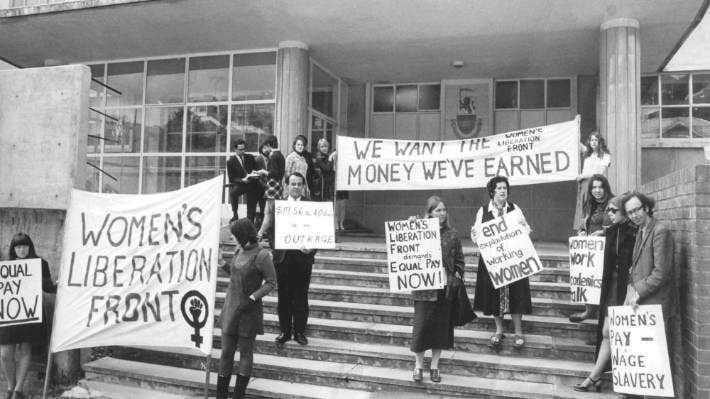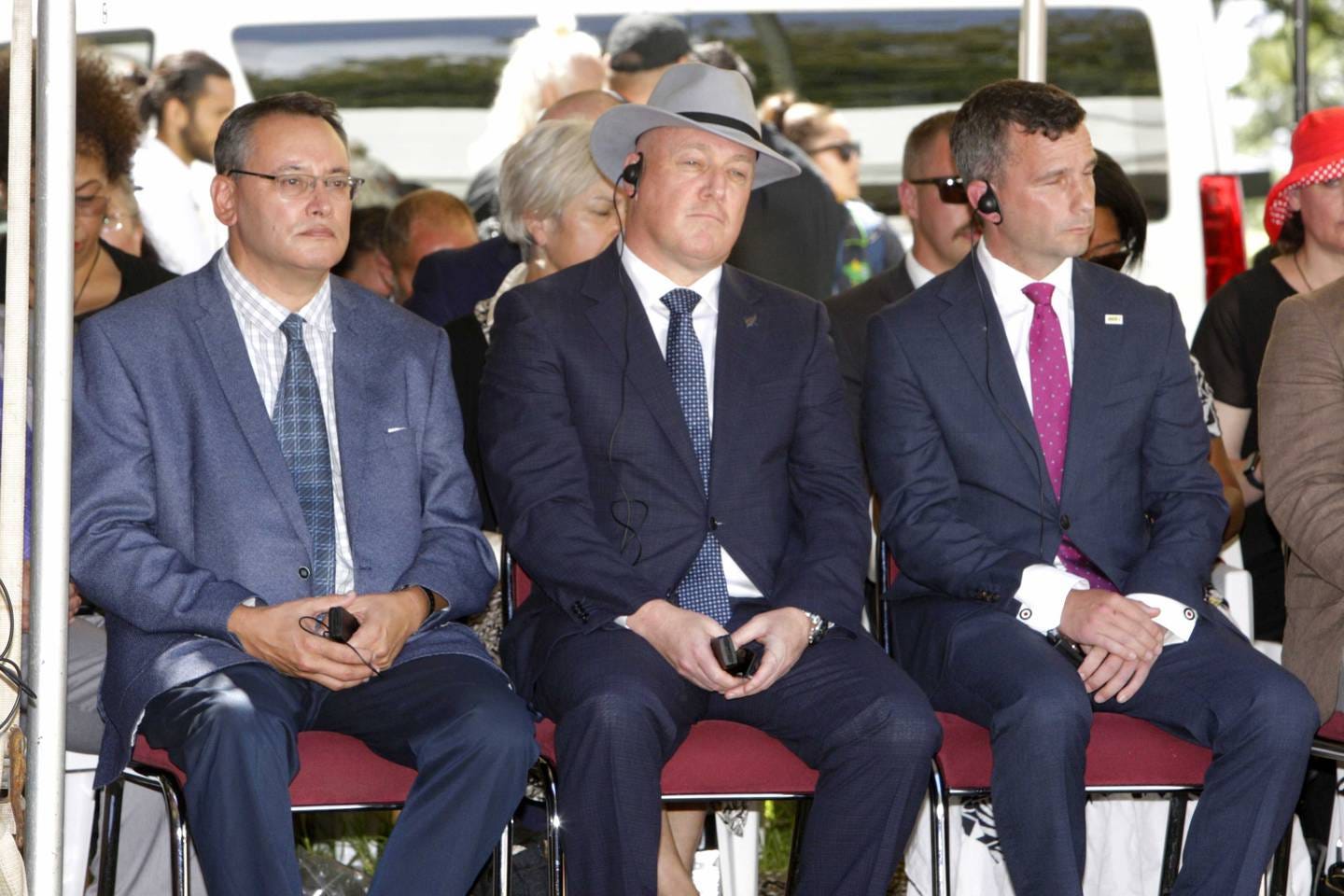Affirmative Action was a key theme at this election, although I don’t recall anyone using those particular words during the campaign.
They’re positive words, and the way the topic was talked about was anything but. It certainly wasn’t a campaign of saying that Affirmative Action was a good thing, but that, as you can see from the title, is the subject of today’s sermon.
A small cheer of “sing it, brother”, would be appropriate at this juncture, or for the less amen inclined among us a simple “right on” will do.
Affirmative Action, it’s pretty simple isn’t it? Taking positive, proactive steps to make something better. So far, so easy right?
But what if you’re part of a group that are advantaged in a way that the affirmative action is seeking to redress? Maybe that doesn’t seem so positive any more.
That was the problem during the election. There wasn’t anyone standing up and calmly explaining, “hey these things are actually good, they make our country fairer, and they’re all about bring people together”. Well apart from all the left wing politicians.
But people didn’t listen to them, it’s kind of hard to when you’ve got someone whispering in your ear. “Hey, you see those fellas over there? Yep, those ones. Oh yeah, some of my best mates are too, for sure. Yeah, well, thing is they want to take your stuff. That stuff you worked hard for. They want to just be given it, and they want more than their fair share.”
Which to be fair, in addition to sounding like complete BS, does sound kinda bad.
“Those guys, lovely people, nothing against them, they want my stuff? Like what?”
“Like your water.”
“You’re kidding?”
“Nup, and they want places on the council, and all the other things, just because of the colour of their skin. Plus they want their own stuff, their own medical system, oh and if your kid wants to be a doctor forget it because they’re at the front of the queue even if your kid got better marks.”
“That sounds really bad and divisive, I don’t want that to happen. Lovely people and all that but I reckon they should work for what they get like everyone else. You’ve got my vote.”
Isn’t it a bit depressing that we’re still here? Shouldn’t we have learned more, and grown up as a country, by now?
Let’s start with that hoary old chestnut about preferential treatment for minority groups receiving training. A conundrum to begin.
The problem is that that mindset requires two ideas to exist concurrently, that don’t make sense together.
That training positions should be based solely on academic merit, or whatever other measure is appropriate, but not on ethnicity, or gender, or anything else.
Minority groups should improve things like health and crime statistics by engaging with services, the same as everybody else.
Surely it’s not too hard to understand that if our doctors and nurses, our police, are disproportionately European, or Asian, or whatever, then groups who do not see themselves in those professions and services are going to be less engaged with them, and I imagine less likely to seek training in those professions.
If you think the scenario of feeling like you’re not part of a culture is hard to understand could we stop for a moment’s silence to consider the mental gymnastics of someone trying to argue that position, whilst also insisting that the use of Te Reo on road signs, or government departments, is not them, not their culture?
Act and National have committed to examine the Māori and Pacific Admission Scheme at Auckland University, and similar schemes at Otago.
Dr Simone Watkins, has written an excellent piece in response as to why Why Māori and Pacific quotas at medical school are essential. In it she says:
“The knock-on effects of even ‘reviewing’ the programme are hurtful and upsetting.
What will happen to the Māori and Pacific children I advocate for and treat in the future, when I retire? How will people like me feel when traversing a health system that doesn’t reflect their culture, health beliefs and background? Do we as a society think it is fair for our at-risk population groups to become further marginalised?”
Sometimes it seems like a toddler at a preschool, having to be told that “because you and your mates won’t share with these other people we’ll have to reserve some of the toys for them, ok David?”
To which David says “if me and my mates manage to get all the toys, then we should be allowed to keep them, and not have to share.”
Whether it be initiatives to improve Māori health outcomes, to encourage the use or Te Reo, or provide a place at the table for Māori on things like water management. They’re all being cancelled, or are under attack, by the new government.
ACT want to close down the Māori Development Minister, the Ministry for Pacific Peoples, the Ministry for Women, the Ministry for Ethnic Communities, and the Human Rights Commission.
People have raised concerns about the lack of diversity in the new government. The fact that the leadership roles are all filled by men, not even a female deputy.
The lack of inclusion of people from other backgrounds - for goodness sake the National Party have a really large caucus and they couldn’t even manage to have one MP from a Pasifika background.
It’s not good enough for Christopher Luxon to just shrug his shoulders, like previous National leaders, and say “we’re working on it”.
No Christopher, you’re not. When the majority of high list placings and safe seats go to Europeans, mostly men, you’re not trying. You’re showing that you’re happy with the status quo, lip-service at best to any considerations of diversity.
New Internal Affairs and Workplace Relations Minister Brooke van Velden said the following on Newshub yesterday.
"I'm not looking at the gender of the leaders. I'm looking at the outcomes we can deliver for New Zealanders. If, in three years' time, we can say that the cost of living is better for people, there's less crime and people feel safer and people actually feel united as a country again, I think that we've got some good outcomes, rather than focusing on the gender."
Hmm, “sing it, sister”?
A meritocracy is all well and good but if we keep seeing people from the same demographics in the top roles, all the time, then statistically that is unlikely to be based on merit.
“Don’t intervene”, people say, “make sure all the right laws are in place and it’ll sort itself out”. Well it’s not, is it? We still haven’t had a Maori PM, for goodness sake even the United States, with its appalling history of racism, has elected an African American President.
As for how we treat female politicians, quite frankly it’s surprising we have any, but thank goodness we do. Look I don’t want to come over all David Cunliffe here but white blokes haven’t exactly covered ourselves in glory, nor been at the forefront of encouraging more inclusion. “If I have it all why do I have to share? That’s not fair.”
I view a person’s attitude towards proactive measures to help others obtain the same privileges that they have, not only as a sign of decency, but also one of maturity.
When we’re young it’s easy to think of the world as being a fair place and that it would be unfair for others to be given things because of their ethnicity, gender, or any other factor.
But as we learn to understand the world, as we witness racism and sexism at play, we realise that in order for things to become more fair, in a timely manner, then intervention, affirmative action, is required.
Look no further than the gender pay gap, which means women are essentially working for free from now until the end of the year. We shake our heads at the unfairness, we talk about how things are gradually improving, but the problem is still there.
People were protesting against this more than half a century ago, and there is still a massive problem. To argue that we don’t need further affirmative action, direct intervention, to address that unfairness doesn’t make sense.

No doubt there are those who are celebrating the new government’s cancellation of many of these initiatives, some may even believe it will make us more equal and less divided.
But what they are really celebrating is an entrenchment of inequality, disadvantage, and prejudice that will lead to anger and unhappiness, widening inequality, reduced representation from minorities, or less privileged groups, and no doubt more division.
Affirmative Action is about one thing in my opinion. Challenging, and trying to overcome, prejudice and unfairness. That seems pretty positive to me.
What do you think?
Apologies if I’ve included this song before, it’s a favorite of mine. I think it fits and I hope you like it too.








It's so disappointing when women, who have fought so hard for the vote, equal opportunity in the work place, control of their own body, are in many cases, still happy to hang on to the coattails of horrible men. For what? The reflective illusion of power? Jacinda Ardern showed that women can be strong and just leaders. What a disgraceful male mouthpiece Brooke van Velden is.
Nick this is all so absolutely true as we experience one of the most depressing times I can remember. We have a Govt that is doing nothing innovative or constructive and instead one that is seeking to destroy the positive and enhance the negative across so many aspects of our lives. The temerity of that Act woman who claims they are creating a less divisive country when it is clear the opposite will happen would be funny if it weren’t so serious. When statistics for Māori and Paifika people are the same across the board then we will have a country we can be really proud of.